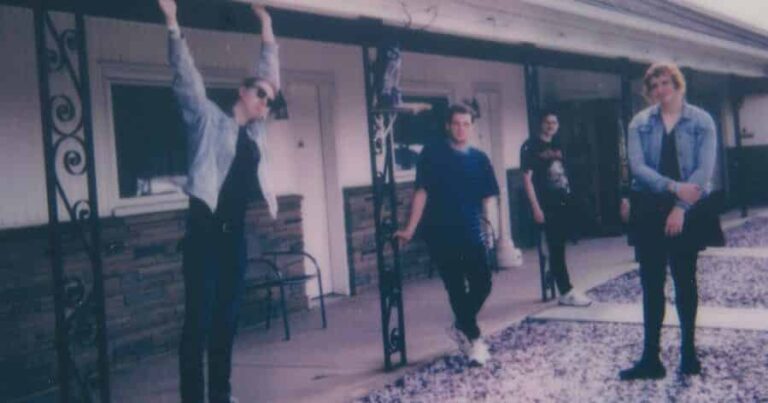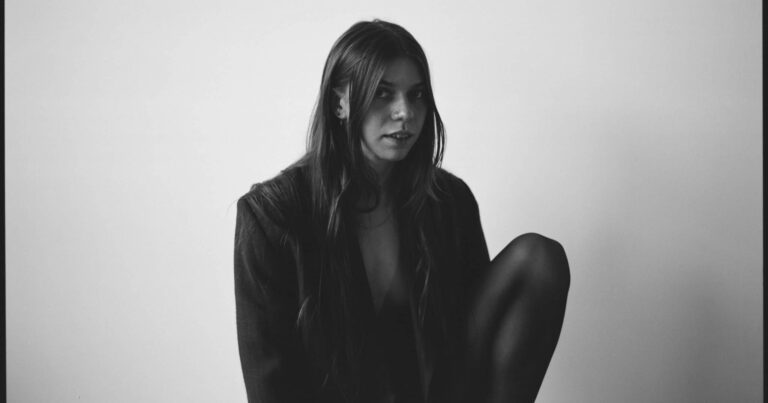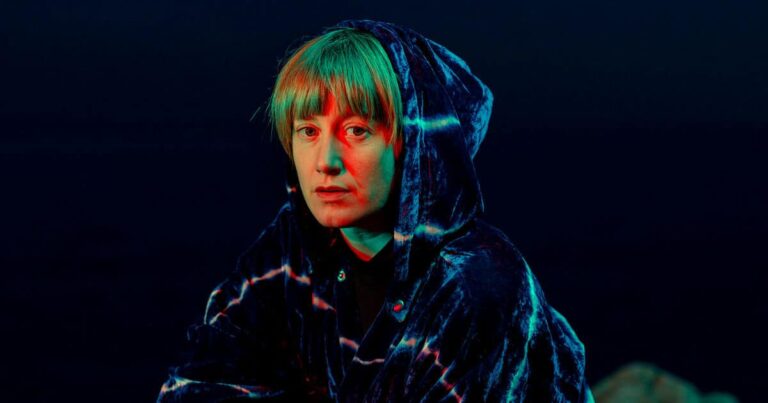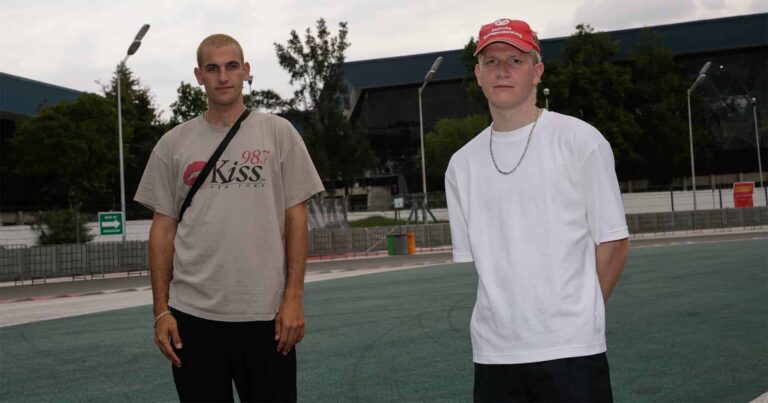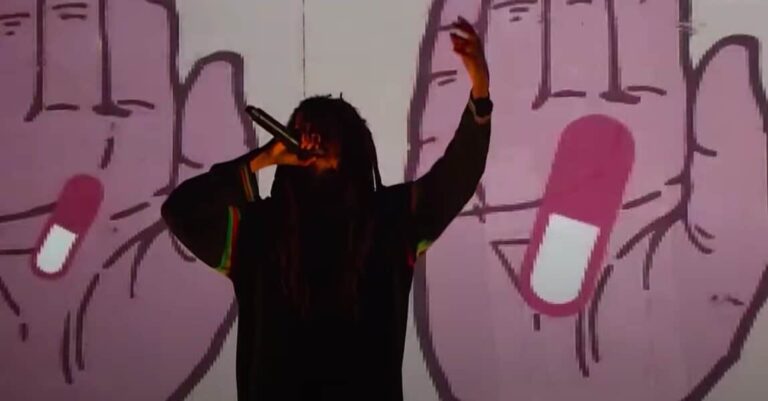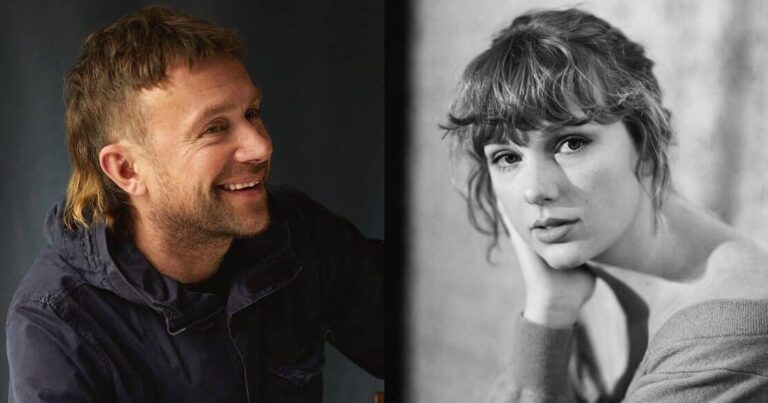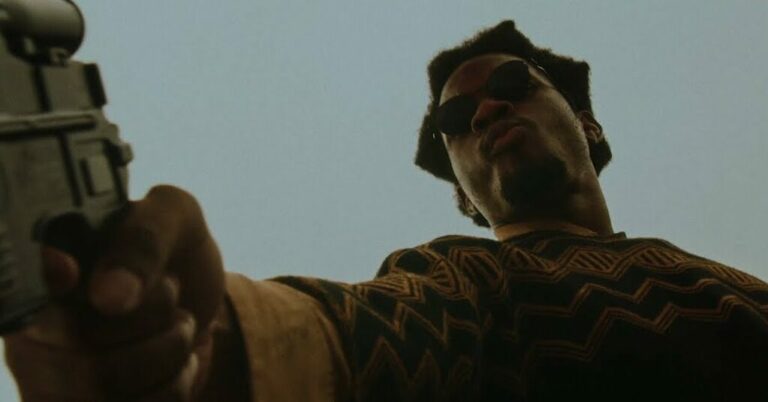Flint, Michigan band Greet Death have released a new single called ‘Punishment Existence’. Following the recently shared standalone tracks ‘I Hate Everything’ and ‘Your Love Is Alcohol’, the group’s latest arrives with an accompanying video directed by David Beuthin. Check it out below.
Speaking about the new song, Greet Death’s Logan Gaval said in a press release:
This song was originally about my girlfriend’s uncle and his drawn-out battle with cancer. I couldn’t come up with a second verse, so I asked Sam to write one as well. I love his verse and the piano part we came up with.
I will never forget the night we finished tracking “Punishment Existence.” My mom texted me that my grandma had passed away. Connie was a matriarch and a very cool person who loved music. She would drink half a bud light and put the cap back on it and stow it away in her fridge. She would call you a “bitch” or a “shithead” if you beat her in poker. Heather’s uncle Kevin was one of the kindest people I’d ever met and built an orphanage in India among other things. Anyway, I think this song is about loss in general. Whether it’s time lost working our jobs during the pandemic, loved ones lost, loss of hope… Great people are taken from this earth, and we’re left with the dregs of humanity. I don’t know if that’s actually true, but that’s how I felt when I wrote this song and how I feel right now.
Greet Death’s last album was 2019’s New Hell.
